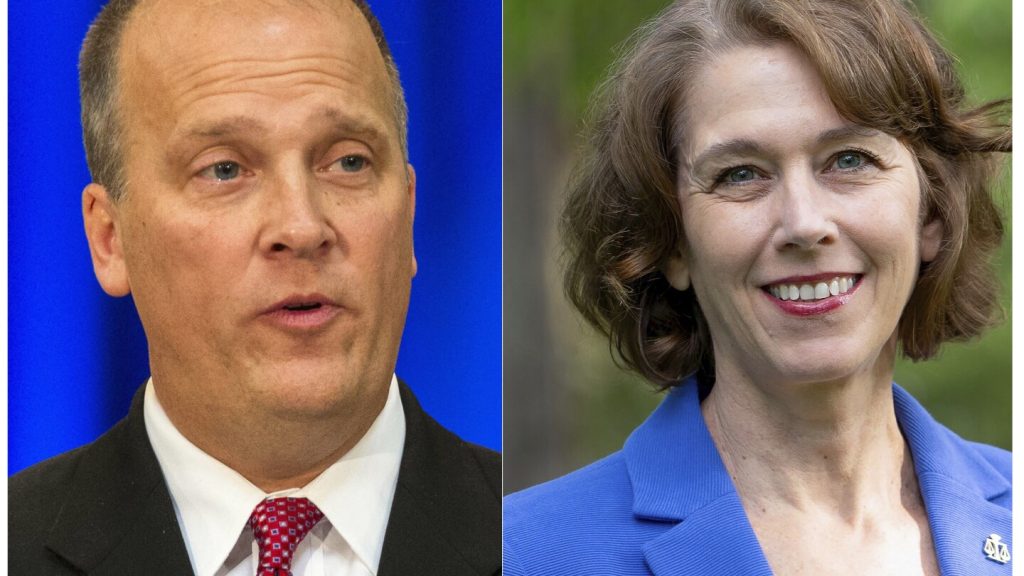The High-Stakes Battle for Wisconsin Supreme Court Control
The race for control of the Wisconsin Supreme Court is heating up as the April 1 election approaches, with billionaire megadonors playing a pivotal role. This battle, masquerading as a nonpartisan contest, is crucial because it will determine whether the court remains under liberal influence or flips to a conservative majority. The stakes are high, and the implications far-reaching, as Wisconsin is a pivotal battleground state that has seen some of the most significant legal battles in recent years, including those over the 2020 presidential election and legislative redistricting. The 2023 race for the Wisconsin Supreme Court, which was also fought over ideological control, holds the record as the most expensive judicial race in U.S. history. This year’s race is on track to surpass that, drawing national attention from the likes of tech mogul Elon Musk, a loyal supporter of former President Donald Trump.
Big Money Backs Both Sides
The financial contributions to the candidates are staggering and polarized along ideological lines. On the Democratic side, George Soros, a well-known philanthropist and progressive activist, donated $1 million to the Wisconsin Democratic Party in January. Other major Democratic donors include Illinois Governor J.B. Pritzker, who gave $500,000; Milwaukee philanthropist Lynde Uihlein, who contributed $490,000; Gloria Page, the mother of Google co-founder Larry Page, who donated $470,000; and LinkedIn co-founder Reid Hoffman, who gave $250,000. These funds have been funneled into Judge Susan Crawford’s campaign, with the Democratic Party transferring a total of $3 million to her, including three recent transfers totaling $2 million. Crawford has raised more than $7.7 million since entering the race in June 2023.
Republican Donors Mobilize
On the Republican side, the money is equally substantial. Diane Hendricks, a billionaire businesswoman from Wisconsin who owns ABC Supply, donated $970,000 to the state Republican Party in January. Liz Uihlein, president of the shipping and packing company Uline, gave $650,000, and Joe Ricketts, the founder of Ameritrade and co-owner of the Chicago Cubs, donated $500,000. Hendricks also made the maximum allowable individual donation of $20,000 directly to Judge Brad Schimel’s campaign. The Republican Party, in turn, transferred nearly $1.7 million to Schimel’s campaign. Schimel has raised $5.1 million since he entered the race in December 2023. These contributions highlight the intense interest and investment from both sides in shaping the ideological direction of the court.
The Role of Political Parties
Under Wisconsin law, while individuals are capped at donating $20,000 to Supreme Court candidates, political parties can receive unlimited donations, which they can then transfer to their preferred candidates. This legal framework has allowed both the Wisconsin Democratic Party and the Wisconsin Republican Party to act as conduits for the massive influx of funds from megadonors. The Democratic Party’s strategy of channeling large sums to Crawford has been met with criticism from Schimel’s campaign, which has accused Crawford of being "George Soros’ ideal investment" and having a specific agenda. Crawford’s campaign, however, argues that these funds are necessary to ensure a fair and competitive race.
The Court’s Recent Battles
The Wisconsin Supreme Court has been at the epicenter of some of the state’s most contentious legal battles in recent years. The court’s decisions have had significant impacts on issues such as the 2020 presidential election, where it played a crucial role in certifying the results. Additionally, the court is currently reviewing cases that affect abortion rights and the fate of a 2011 anti-union law. These cases highlight the court’s importance and the potential for its rulings to shape the state’s political and social landscape. With more battles looming, including those over reproductive rights, election laws, and congressional redistricting, the upcoming election is a critical moment for both progressive and conservative stakeholders.
The Human Side of the Race
Beyond the numbers and the ideological tug-of-war, the race for the Wisconsin Supreme Court also has a deeply human aspect. For Judge Susan Crawford, a Dane County Circuit Judge, and Judge Brad Schimel, a Waukesha County Circuit Judge, this election is about more than just winning a seat. It’s about the direction they believe the state should take and the values they want to uphold. Crawford, who has received significant financial backing from progressive donors, sees her role as protecting the rights and liberties of Wisconsin’s citizens. Schimel, backed by conservative megadonors, emphasizes his commitment to upholding the law and the Constitution. The involvement of such prominent figures as Soros and Hendricks underscores the national significance of this local race, making it a microcosm of broader political and social debates. As the election draws near, both candidates and voters are deeply engaged in a contest that could have far-reaching implications for the state and beyond.












